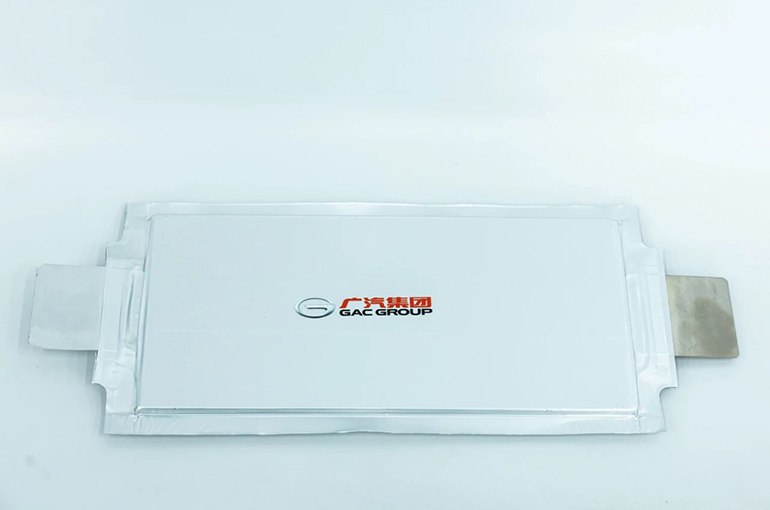 GAC Becomes First in China to Trial Mass Production of All-Solid-State Batteries
GAC Becomes First in China to Trial Mass Production of All-Solid-State Batteries(Yicai) Nov. 25 -- GAC Group has become the first Chinese firm to pilot mass production of auto-grade all-solid-state batteries exceeding 60 amperes, a key milestone on the carmaker's path to deploying these power packs in small volumes, Chairman Feng Xingya told reporters at the Guangzhou Auto Show.
The batteries have an energy density nearly double that of current power batteries, Qi Hongzhong, head of new-energy power research and development at GAC's advanced platform technology institute, said at the same press briefing yesterday.
All-solid-state batteries, which use a solid electrolyte, are seen as a game-changer for the electric vehicle market because of their higher energy density, better safety, and longer lifespan versus conventional lithium-ion batteries that use liquid electrolytes.
Guangzhou-based GAC plans to start trial installations in small batches next year, then gradually move to mass production between 2027 and 2030, Qi said.
After jumping by as much as 7.7 percent at the market open today, GAC’s shares [SHA: 601238] closed 1.9 percent higher at CNY8.52 (USD1.20) each. The broader Shanghai market added 0.9 percent.
Feng also noted that GAC has undergone a major transformation over the past year, with much of it driven by lessons learned from partner Huawei Technologies. Those changes range from reorganizing its internal structure to adopting integrated product development practices and revamping its marketing system, he said.
GAC is shifting from a traditional "department-based division of labor" to a “product-based team” model, according to Xia Xianqing, its newly appointed general manager. The core of the change is to break down silos and strengthen cross-functional collaboration as well as enhance operational efficiency, he added.
In September, GAC stepped up its cooperation with Huawei's Intelligent Automotive Solution business unit, jointly launching a new car brand, Qijing.
"Qijing targets younger, more fashionable consumers who demand top vehicle performance," Xia noted. The first electric vehicle model under the marque will launch next year, priced at around CNY300,000 (USD41,800), according to plans.
Qijing has been positioned as a top strategic priority by the group. Feng has said the automaker “gives Qijing the highest priority” and is “all in on Qijing.”
As part of its transformation, GAC is also shaking up its sales network, planning to add 600 new brand experience stores to cover over 90 percent of county-level markets nationwide. So far, it has begun planning and recruiting for the first batch of 100 cities.
Compared with other leading carmakers, GAC’s existing services and sales, spare parts, services, and survey store experience still has room to improve, said Deputy GM Huang Yongqiang. To support its new energy strategy, GAC intends to deepen its sales network down to the county and township level.
GAC Aion, the firm’s new energy vehicle arm, recently released a new model with JD.Com called the Aion UT. Priced from only CNY49,900 (USD9,950), the Aion UT is aimed at lower-tier markets.
China's NEV market is is rapidly penetrating into fourth- and fifth-tier cities, Huang noted, adding that GAC aims to leverage JD.Com's online channels to expand into lower-tier markets, with the Aion UT as the main product.
Editors: Tang Shihua, Futura Costaglione